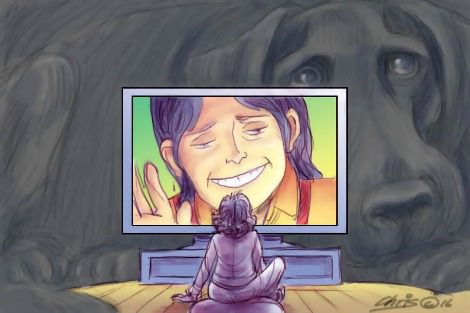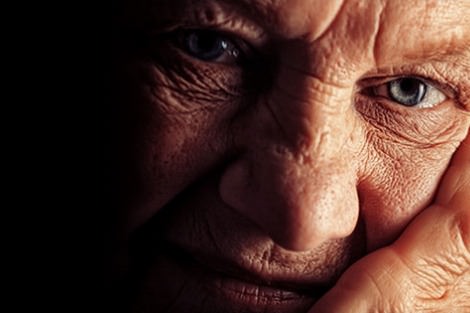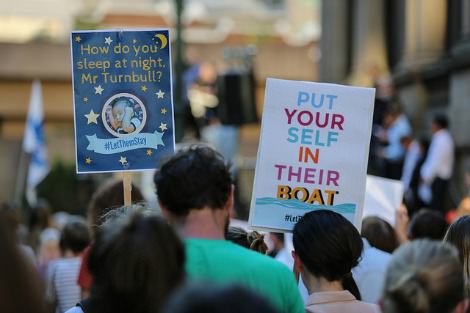Keywords: Doctor
There are more than 200 results, only the first 200 are displayed here.
-

AUSTRALIA
Our friend's not doing so well. The Black Dog has caught up with her. It's been chasing her for 20 years. She got tired; couldn't run anymore. So up to the emergency department she went: 'Doctor, nurse ... anyone, I can't run anymore. The Black Dog's too fast, too strong. I'm worn out - just want to be normal.' They heard her ... sort of. Into a tiny room she was sent ... to wait. Don't be fooled by politicians and bureaucrats holding umbrellas; the mental health landscape is in severe drought.
READ MORE 
-

AUSTRALIA
- Andrew Hamilton
- 03 March 2016
9 Comments
Who better to consult than Dr Hippocrates and his humours? Before Tony Abbott's deposition the choleric element dominated in Australia, full of sound and fury. This has been followed by the preponderance of the sanguine humour, expressing itself in that sunny optimism that makes light of problems. But more recent events suggest that the humours are again in chronic imbalance. The core weakness in the Australian constitution has not been removed with the accession of Malcolm Turnbull.
READ MORE 
-

AUSTRALIA
- Kate Galloway
- 24 February 2016
4 Comments
It is right and good that the outpouring of community and professional goodwill has at least delayed the return of baby Asha to what are reported to be the terrible conditions of the detention centre on Nauru. But Australia's asylum seeker laws involve unresolved systemic issues that such wins cannot by themselves resolve. Widespread community focus on individual cases such as that of baby Asha may in fact prevent action on the deeper issues from gaining traction.
READ MORE 
-

AUSTRALIA
- Gillian Bouras
- 23 February 2016
7 Comments
Elder abuse resembles child abuse in its iceberg qualities: both have received little attention until comparatively recently. In the case of elder abuse, very few cases ever come to court: old people are as helpless as children, similarly unable to plead their own cases, and afraid to: they have little power. The Yiddish proverb springs to mind: If you can't bite, don't show your teeth. The most consistent offenders, sad to say, are family members, who are often adept at exploiting the fear that is part of ageing.
READ MORE 
-

AUSTRALIA
- Somayra Ismailjee
- 12 February 2016
8 Comments
Since the first churches offered sanctuary to the refugees facing deportation to Nauru, a steady stream of voices have joined the call for compassion. As a political language, compassion is itself a reclamation of power. Extending safety, resources, or even a mere welcome to people in need proves that we have something to give. Strength is embodied by a capacity to aid and assist, rather than in cruelty. Empathy, care and compassion appeal to us on a level of emotion that runs deeper than mere rhetoric.
READ MORE 
-

AUSTRALIA
- Justin Glyn
- 11 January 2016
4 Comments
Health care professionals at the Royal Melbourne Children's Hospital have begun to do what could not be achieved by reports from the UN Special Rapporteur on Torture and Australia's Human Rights Commission. The doctors and staff are refusing to release children they treat back to the detention which caused their problems in the first place. By this brave act has begun the slow task of pouring daylight (always the best antiseptic) into this gaping wound in Australian society.
READ MORE 
-

RELIGION
- Michael McVeigh
- 07 December 2015
45 Comments
At the moment, the conversation on marriage equality vs traditional marriage is being driven by extremists on both sides, people who see the struggle as a polarised conflict with the goal of overwhelming victory. But most of us would find that victory unattractive no matter which side is triumphant. Instead, we can choose not to press the button, and to work together to allow both same-sex couples and practising Christians to live their beliefs faithfully, to the fullest of their flourishing.
READ MORE 
-

RELIGION
- Frank Brennan
- 03 December 2015
The consideration of medico-legal problems in the public square of a pluralistic democratic society keeping pace with profound technological change is often marked by simplistic assertions, precluding considerations of comprehensive world views, whether religious or philosophical. It is now commonplace for doctors to be told to leave their consciences at the door, as their patients are consumers and they are suppliers and of course the market decides. Debates about law and policy are often resolved with simplistic assertions about individual rights and autonomy, with little consideration for the public interest, the common good, and the doctor-patient relationship. Even conscience is said to be a matter for contracting out. This evening I ask whether there are more compelling ways to resolve medico-legal dilemmas, while conceding a limited role for law in determining the range of acceptable answers.
READ MORE
-

ARTS AND CULTURE
- Tim Kroenert
- 19 November 2015
1 Comment
Following its whitewashing of 'wife-beater' Ant-Man and the Black Widow slut-shaming debacle, Marvel has a long way to go to show it is not one big boys club. Alias, basis of the new series Jessica Jones, is one example of a modern day Marvel comic that, in the words of pop culture critic Roz Kaveney, offers a 'rebuke to the convenient pieties of the comic book', by proving that comics can be thematically rich, and can take serious issues — such as the physical and sexual abuse of women by men — seriously.
READ MORE 
-

EUREKA STREET TV
- Peter Kirkwood
- 28 October 2015
4 Comments
'How we address radicalisation as a psychologist is to help people to examine their way of thinking. Every form of radicalisation and fundamentalism is to do with rigidity in the way people think. Our job is to help people to see that rigidity in anything doesn't work.' Clinical psychologist Shehzi Yusaf has a particular interest in the role of religion and spirituality in mental health. She is based in Parramatta, the site of the recent murder of NSW police employee Curtis Cheng by 15-year-old Farhad Jabar.
READ MORE 
-

AUSTRALIA
- Justin Glyn
- 13 October 2015
9 Comments
Health care professionals at the Royal Melbourne Children's Hospital have begun to do what could not be achieved by reports from the UN Special Rapporteur on Torture and Australia's Human Rights Commission. The doctors and staff are refusing to release children they treat back to the detention which caused their problems in the first place. By this brave act has begun the slow task of pouring daylight (always the best antiseptic) into this gaping wound in Australian society.
READ MORE 
-

ARTS AND CULTURE
- Graham Kershaw
- 22 September 2015
1 Comment
I dreamt of a family escaping through pines, over the crest of a forest, young and old struggling down to the shore of a great cold lake, their only hope of escape; no boat was there, but the strong might try to carry the old, at least, if they cared enough. And it made me want to simply run away, to escape the brain-ache of not doing what we are best made to do.
READ MORE 